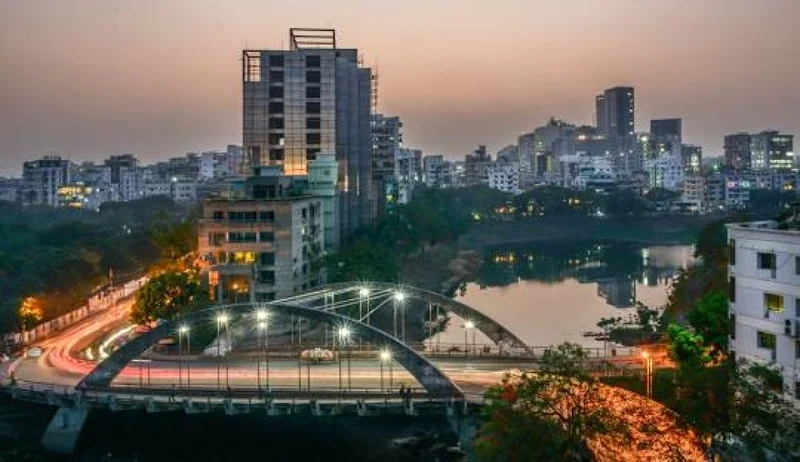Generated Title: Bangladesh's Cultural Renaissance: How Artists Are Resisting the AI-Era's "Cultural Fascism"
A Symphony of Defiance
The news coming out of Dhaka, Bangladesh, these days isn't always pretty. You've probably seen the headlines: political unrest, air quality alerts, even reports of auto-rickshaw robberies. But beneath the surface, something truly inspiring is brewing—a cultural resistance, a defiant symphony of creativity pushing back against what some are calling "cultural fascism." And honestly, when I first read about it, it gave me chills – the good kind.
See, the interim administration in Bangladesh, led by Muhammad Yunus, made a decision that sent shockwaves through the nation's artistic community: scrapping plans to recruit music and physical education teachers in primary schools. The reason? Pressure from Islamist groups who deemed these subjects "un-Islamic." Can you imagine? In the 21st century, deciding that music is somehow… wrong? Cultural fascism: Protests in Dhaka as Yunus govt bows to Islamists on music
But here's where the story takes a turn. Instead of backing down, the artists and students of Dhaka rose up. Students and faculty from Dhaka University and Jagannath University staged protests, filling the streets with song and dance. They gathered in front of the Aparajeyo Bangla statue, a symbol of freedom, chanting and demanding the reinstatement of these vital positions. At Jagannath University, students formed a human chain, their voices echoing across campus in protest songs. It was an explosion of creative energy, a collective refusal to be silenced.
Azizur Rahman Tuhin, a music teacher at Dhaka University, put it perfectly: "Civilisation survives on art, literature, and culture. Excluding music will hinder mental and physical growth." Isn't that the truth? It's not just about learning notes or dance steps; it's about nurturing the human spirit, fostering creativity, and building a society that values expression. And Israfeel Shaheen from the Department of Theatre said it best, "A state cannot flourish through religion alone. Culture never opposes religion".
Now, you might be thinking, "Okay, that's inspiring, but what does it have to do with the AI era?" Well, let me tell you, it has everything to do with it. We're living in a time of unprecedented technological change, a time when AI is rapidly transforming every aspect of our lives. But technology without humanity is a dangerous thing. It's like giving a toddler a loaded weapon.
The real risk in this AI era isn’t that machines will become sentient and turn on us, it’s that we’ll cede our humanity to algorithms, that we’ll allow cold, calculated logic to replace empathy, creativity, and passion. The situation in Bangladesh is a stark reminder of what happens when we devalue the arts, when we prioritize conformity over expression. It's a slippery slope that leads to a world where everything is sterile, predictable, and devoid of soul.

This isn't just about Bangladesh; it's a warning for all of us. We need to actively cultivate creativity, to champion the arts, and to ensure that technology serves humanity, not the other way around. Imagine a world where AI-powered tools are used to amplify artistic expression, where anyone can create beautiful music, stunning visuals, and compelling stories, regardless of their background or skill level. That's the future I want to see, and it's a future we can build if we stand up for what we believe in.
The Fight for Secularism
The Yunus administration's actions are a symptom of a larger trend. The article mentions previous concessions, such as backtracking on women's rights, signaling a willingness to bow to religious pressure. With groups like Hefazat-e-Islam emboldened, critics warn Bangladesh's secular and pluralistic identity is at risk. This makes me think of the printing press revolution. Just as the printing press democratized knowledge, giving rise to new ideas and challenging old orthodoxies, so too can technology empower artists and activists to resist oppression and fight for a more just and equitable world.
But here's the ethical consideration: with this power comes responsibility. We must use technology to promote understanding, to bridge divides, and to foster a culture of respect and tolerance. We must be vigilant against the spread of misinformation and hate speech, and we must ensure that everyone has a voice.
And what about the air quality in Dhaka? It was ranked fourth on the list of cities with the worst air quality with an AQI score of 226 at 9:30 am this morning (November 9, 2025). It's classified as ‘very unhealthy’ referring to an alarming health threat, according to the AQI index. It all connects, doesn't it? A society that neglects its environment, that silences its artists, is a society in decline. We need to fight for clean air, clean water, and a clean cultural landscape.
The protests in Dhaka aren't just about music and physical education; they're about defending the soul of a nation. They're about preserving the values of secularism, pluralism, and freedom of expression. They're about ensuring that future generations have the opportunity to live in a world where creativity flourishes, where diversity is celebrated, and where technology serves humanity.
Bangladesh's Artists: The Last Line of Defense
These artists in Dhaka? They're not just fighting for their jobs; they're fighting for the future. They're a reminder that even in the face of adversity, the human spirit can triumph. They're a beacon of hope in a world that often feels dark and uncertain. And when I see that kind of courage, that kind of passion, I know that the future is still worth fighting for.
